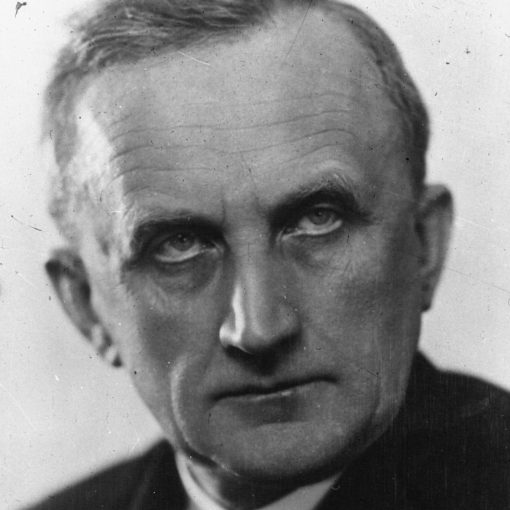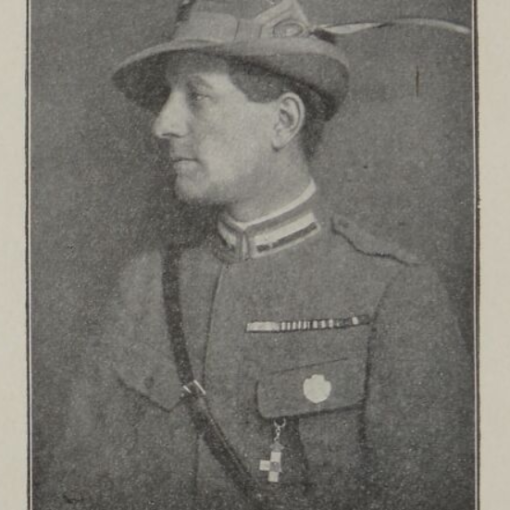Jan Syrový was one of the top army officers in Masonic circles. His Masonic activity was linked to the Národ Lodge, of which he became a member in 1926. Shortly after, he asked for a demit because of being lambasted by the Catholic press, only to be reaffiliated again in 1928. At that time, he was proposing with Přemysl Šámal and Josef Schieszel to extend an invitation to Edvard Beneš to join the Masonic ranks. Later, he accompanied Beneš for his famous presentation in the Harmonie Lodge, a German lodge based in Prague. He was constantly reminded of Freemasonry even during his times as a Czechoslovak prime minister…

Jan Syrový was born in Třebíč as a son of a tinsmith. He studied for being a construction technician at the Czech Higher Industrial School in Brno. After that, he went to work in Warsaw, which was then located in the Russian part of Poland. He worked in the construction company as he started to study again. This time, he focused on progressive ferroconcrete construction, and right after he successfully finished his studies, just before WWI, he became a construction technician for the Warsaw national construction office. From there, he went on to join the Russian army as a volunteer, where he soon gained a lot of success and climbed up the ranks. He was a so-called old companion, that means a legionary that was settled in Russia and co-created a foreign army, not a prisoner of war or defector. He lost his eye at the famous battle of Zborov, and the black eye patch became his mark, moreover referring to the historical military leader Jan Žižka.
Jan Syrový became a commander of the Czechoslovak legionaries in Russia, later promoted to a General. In this rank, he led the military advance to Siberia and in 1920 he returned with praise to Czechoslovakia. He permanently switched from the construction field to the military career. From the position of provincial commander, he moved to the General Staff of the Czechoslovak Armed Forces, which was commanded by the French military mission for many years, and became its first Czech commander. In 1933 he moved to the position of Inspector General of the Czechoslovak Armed Forces.
During the Munich period, though a soldier, he thought realistically. He did not believe that the army would be able to withstand the German attack. He wanted to fight but alongside the Allies. Otherwise, the fight did not make sense to him. He eventually became head of the caretaker government. After the abdication of president Beneš, he was also considered the possible next president, but the circumstances of the Second Republic did not ultimately favour the election of an iconic legionary hero. During his second term, he also held the constitutional duties of the President of the Republic. He remained in the Prime Minister’s Office until the end of November 1938, when, after the election of Emil Hácha as President, he handed over the post to Rudolf Beran, the chairman of the Agrarian Party. He then served in this government as Minister of Defense, where he was directly confronted with the occupation of the rest of Bohemia and Moravia on March 15, 1939. He was the one who gave the order not to resist. The further fate of Jan Syrový was influenced by a few moments on March 16, 1939. On that day, General Syrový arrived at the Prague Castle and was invited to follow the members of the Wehrmacht to the so-called royal wing. “When the door opened, President Hácha came out. Syrový was then asked to enter the room. He found out that Hitler was standing by the window. He approached Syrový and told him that the occupation must have happened, that he would understand it one day, and that the Czech nation would do well under his patronage. After that, he shook his hand. At that moment, the famous photo was taken.” The photo appeared in the newspaper the very next day, and at that moment the hero became a hated traitor. He withdrew from public life and spent the war in his villa in Dobřichovice. He did not join the resistance, but with the consent of another Mason – a general in charge of the government – Alois Eliáš – he transferred generous financial resources from the fund of the Legionnaires’ Social Institute for the needs of the resistance and the support of the families of persecuted resistance members.
After the war, Jan Syrový was one of the first to be arrested, accused of high treason. He was trialed with Rudolf Beran. He was blamed for not destroying military material in March 1939, which then fell into German hands. It was more than 1,500 aircraft, over 500 anti-aircraft guns, almost 500 tanks, tens of thousands of machine guns, and over one hundred thousand pistols. It was technically impossible to destroy all the material in the short time Syrový had. It was more of a political responsibility that he had as Minister of National Defense. In 1947, Syrový was to receive an offer that if he testifies against Rudolf Beran, who was after all the main person in the trial as the head of the Agrarian Party, his sentence could be much lower or even none at all. Jan Syrový refused. In the end, they both received the same sentences – 20 years in prison, forfeiture of property and civil rights. At the same time, he was demoted to a private soldier.
Syrový spent a total of 15 years in Valdice and Mírov prisons and was released during a large amnesty in 1960. As he was not entitled to a pension, he began working as a gatekeeper. Thanks to the eye patch, he was easily identifiable until his death in 1970.
Jana Čechurová



